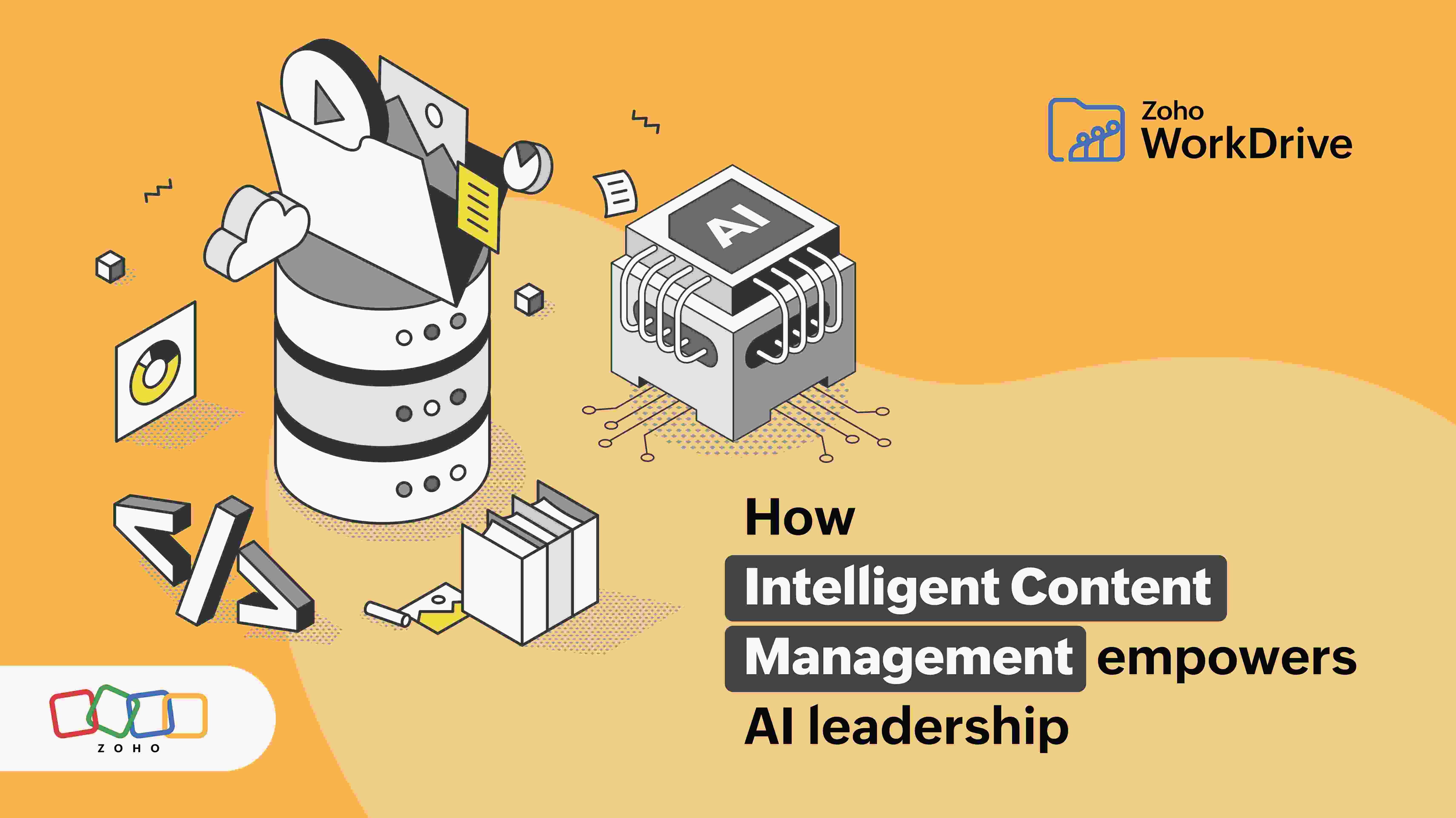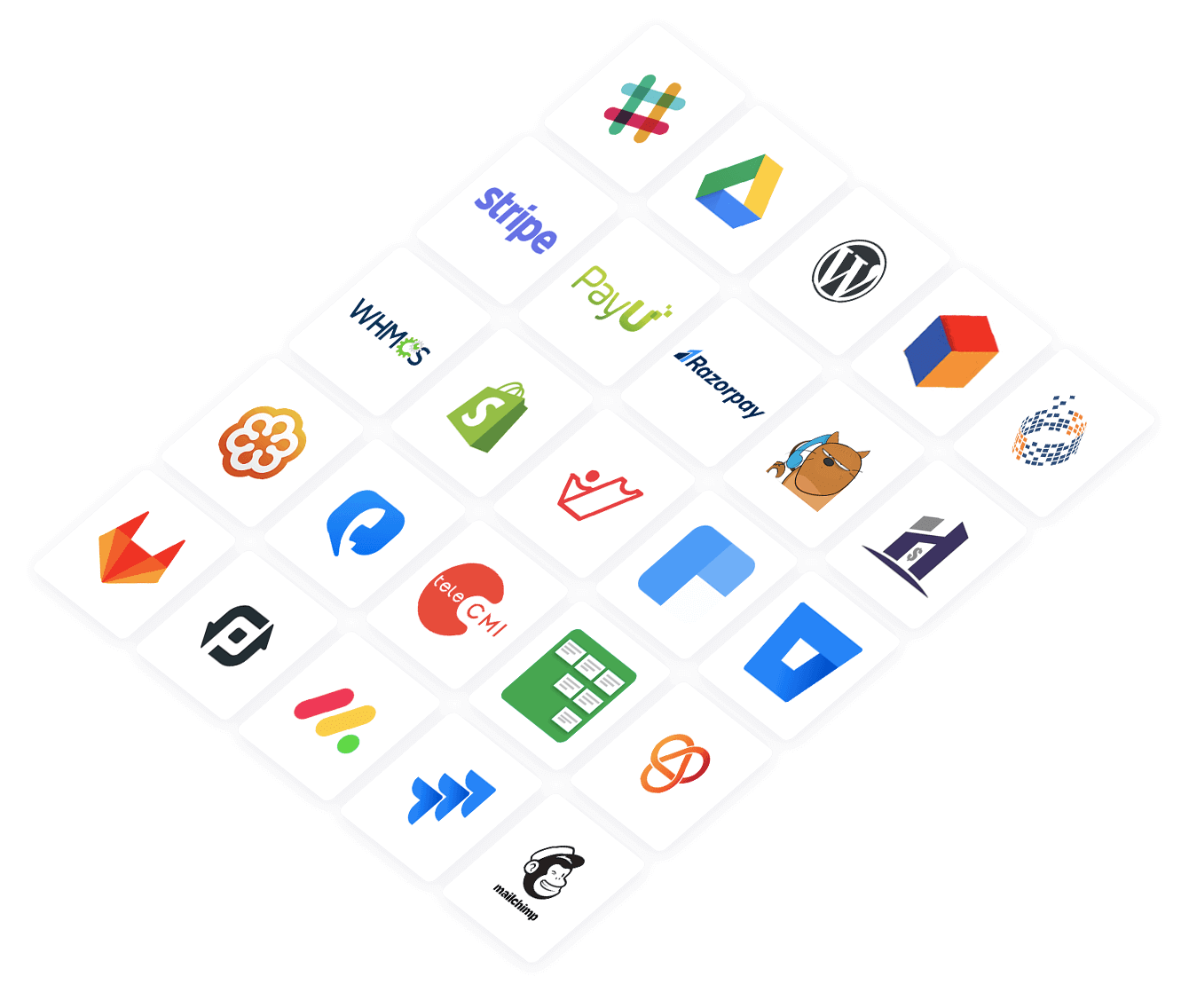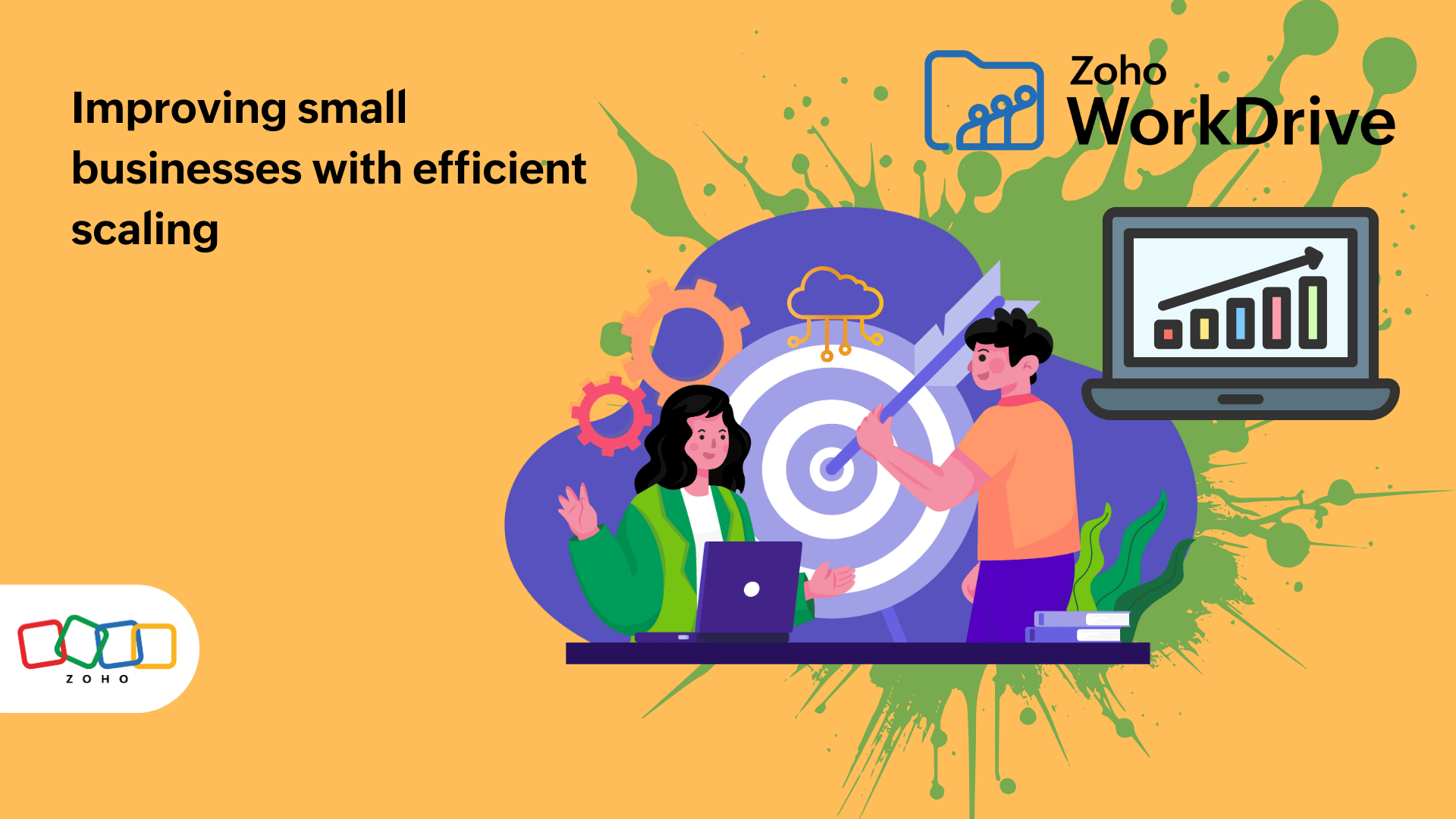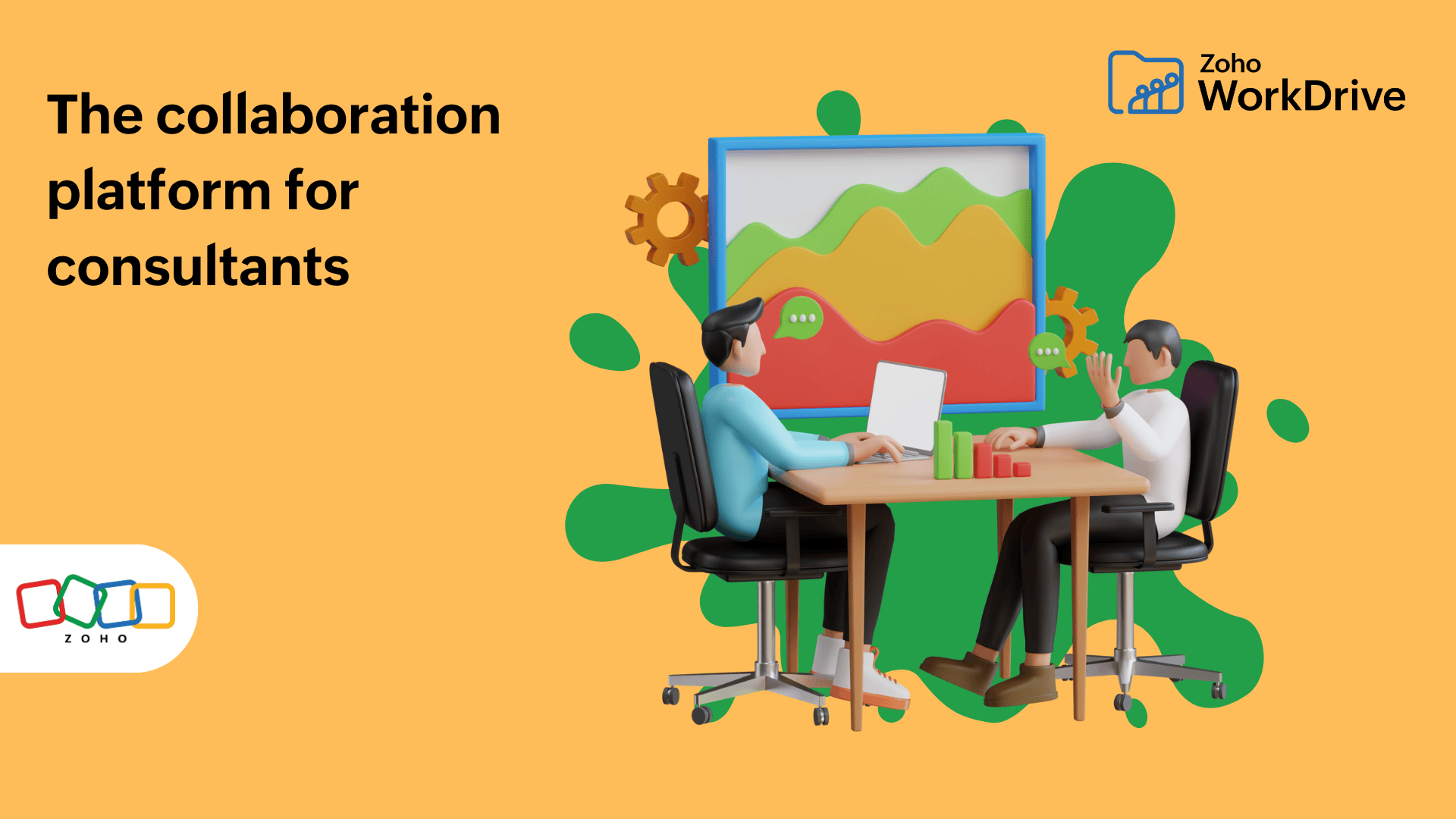- HOME
- Work Culture
- Become an AI leader with intelligent content management
Become an AI leader with intelligent content management
- Last Updated : May 26, 2025
- 66 Views
- 6 Min Read

Businesses around the world are evolving rapidly, and they generate more and more content every day. Look closely at any financial services firm, educational institution, or manufacturing company, and you find that digital document management is a crucial and intensive task, which consumes a large amount of employees' time and energy. Generative AI is one of the effective game changers in managing this ever-growing volume of content and data.
What happens when AI's potential is leveraged and combined with a content collaboration platform? That's where a file storage collaboration solution evolves into an intelligent content management platform. Implementing intelligent content management (ICM) in your business will help your organization become a leader in realizing the full value of AI.
"Even with the widespread implementation of AI programs, only 26% of companies have developed the necessary capabilities to generate tangible value."
This comes from the Boston Consulting Group's AI adoption in 2024 report, which indicates that successfully leveraging AI capabilities will put your organization in a leading position within a competitive market.
But what makes a platform "intelligent" in the first place? Let's dive-in to know the what, why, and how of intelligent content management.
What is intelligent content management?
At its core, intelligent content management is the ability to implement systems for better categorization of files, use AI assisted file automation, and auto-classify sensitive information to enable users to search, discover, analyze, and automate enterprise data seamlessly.
The intelligent aspect can be attributed to numerous capabilities. Here are some noteworthy intelligent features of an ICM system and how they can put your business at an advantage.
Artificial intelligence
Creating content with just a short prompt gives your team a rapid way to expand simple ideas into full documents or designs. This can be used to develop your thoughts efficiently, and combining it with AI's translation capabilities will let you collaborate with a wide range of audiences.
Custom apps
One of the biggest obstacles faced by many professionals today is the need for constant context switching. Custom apps solve this by letting you build bridges between applications. In simple terms, your apps will be interconnected, so that you won't need to toggle between multiple applications as frequently, which empowers your team to focus on deep work.
Automated workflows
It restricts productivity when you have a cumbersome process for moving files between departments for approvals and need to have multiple copies of the same file in different places. Automated workflows mitigate this by creating systems to take your file through various digital touchpoints while promptly notifying the person responsible for the task at each stage. This saves storage by reducing file redundancy and increases productivity by accelerating workflows.
Data Loss Prevention
Most companies today adhere to strict guidelines when it comes to managing content containing personally identifiable information (PII). Data loss prevention (DLP) systems auto-classify documents with PII and restrict sharing and downloading to ensure the security of critical data at all times.
Systematic backup automation
One advantage of working in the cloud is the ease of data accessibility. Having content and data available anytime helps ensure business continuity. Automating the process of backing up data in more than one data center with on-demand retrieval capabilities adds another layer of protection.
Data classification and discovery
Implementing AI, metadata, and multiple levels of classification for file discovery improves digital operations. This can be achieved through Optical Character Recognition (OCR), Object Detection (OD), and contextual searches to look up for files. Another way of achieving this is through metadata association and organization-level classification.
How does intelligent content management benefit your organization?
Organizations can achieve business efficiency at multiple levels with the features of an ICM platform. ICM allows users to define their file storage model, which includes details of the stored data, its storage location, who is responsible for it, and access to instant file discovery. All this is achievable through one solution—intelligent content management.

Here are some examples of how ICM can benefit your organization.
Automate tasks and stay on schedule
Consider a marketing firm that works with many clients at the same time. With various functions like drafting content, designing ads, handling client relationships, and managing internal functions like HR, the agency must juggle a large number of interrelated processes. Automating these tasks using workflows will ensure accuracy and keep operations running smoothly.
Admins can design and initiate a custom workflow that unifies collaboration between writers, designers, and approvers. Once a workflow is triggered, every assigned individual receives a notification when the workflow requires their attention.
ICM also allows users to create and revise content using generative AI, which means no missed deadlines and perfect high-quality output for clients.
Ensure cyber compliance with auto classification
Financial institutions process a large amount of customer data everyday. From loan applications to account details and transactional data, there is personally identifiable information at every stage. Although processes can be automated through workflows, the security of the PII must remain a priority.
Managers can now create data loss prevention (DLP) policies that will restrict users' ability to download or share critical PII data. This helps financial services providers stay compliant and foster customer trust.
Collaborate across geographies and bridge the communication gap:
Organizations like consultancies and other IT-enabled service providers often need to collaborate with customers across the globe. An efficient method of bridging the gap between different timezones is to use asynchronous collaboration, which lets you host fewer meetings and skip redundant demo sessions.
Taking this a step further, you can use AI to summarize long documents, ask questions in your natural language, transcribe video and audio recordings of past meetings, and translate the text to the language of your choice. This makes communication more efficient, irrespective of time, distance, or language barriers.
Intelligent content management can go a long way to unlock opportunities across every industry and business function. From billing automation and patient onboarding optimization for healthcare to automated content classification and intelligent search capabilities for educational enterprises, the potential use cases are truly endless.
How can you turn all this knowledge about ICM to your business benefit? One way to make your file storage system more intelligent is to integrate your legacy collaboration and file storage software with numerous APIs. This route heavily relies on having the in-house technical expertise required, which can increase the overall cost significantly.
A more efficient approach for many organizations would be to implement a modern platform that offers ICM features and allows you to integrate with your choice of legacy applications.
From content collaboration to content intelligence: Zoho WorkDrive
Zoho WorkDrive is an intelligent content management platform that offers your business AI capabilities to make both file storage and collaboration more seamless and effective. Compliant with the latest global standards, WorkDrive ensures data protection at all levels. Our solution enables businesses to:
- Streamline content routing and automate workflows (Workflow)
- Deliver relevant content functionality based on user behavior and preferences (link)
- Minimize context switching by building bridges between applications to connect any platform with WorkDrive
- Automatically secure files with sensitive information and restrict sharing options (DLP)
- Leverage Zoho's AI assistant, Zia, to create content, translate text, transcribe media files, summarize documents, and search across integrated apps
- Save time spent in redundant meetings, and share your thoughts effortlessly across timezones with WorkDrive Snap
- Find what you need with our advanced search that understands the meaning behind your queries
- Categorize and tag files based on content and organize unstructured data to make retrieval effortless
The next step
The adoption of intelligent content management represents a fundamental shift in how organizations handle information. By bringing artificial intelligence and machine learning into your business, you can turn the passive data from files into strategic assets that contribute to productivity and innovation. As we continue to enhance our intelligent content capabilities, we invite you to explore how Zoho WorkDrive can make your organization's approach to content management more intelligent.
The future of work is intelligent, and it starts with how you manage your content.




